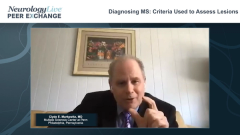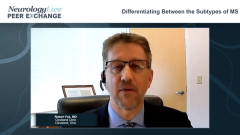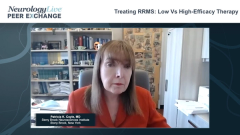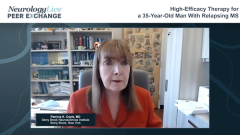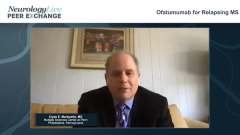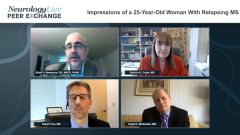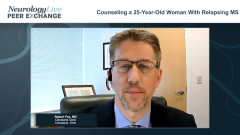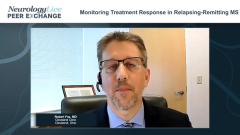
Treating RRMS With Anti-CD20 Therapy During COVID-19
Important considerations regarding the use of anti-CD20 therapies such as ofatumumab to treat relapsing multiple sclerosis during the COVID-19 pandemic and strategies that can help neurologists talk with patients about drug use and COVID-19 vaccinations.
Episodes in this series

Scott D. Newsome, DO, MSCS, FAAN: Pat, I’ve heard you talk many times about how MS [multiple sclerosis] is a bad disease. The risk of MS, untreated or subtherapeutically treated, will get people into trouble. With another drug, ofatumumab, if this was the only option for a patient during a pandemic, what is that conversation like?
Patricia K. Coyle, MD: When I’m talking about high-efficacy monoclonal antibodies, I talk about the 2 anti-CD20 agents together. I consider them quite comparable. You can create pros and cons, but from a clinical viewpoint, they have not shown that that makes a huge difference. The biggest question is this: Do you want to come to an infusion center twice a year, or do you want to inject yourself at home, subcutaneously every 4 weeks?
Personally, I don’t like the fact that the pandemic should change how I practice and what I believe will be in the best interest of my patients. Now, in shared decision-making, if the patient has a real concern, and it has gotten to the point that patients are afraid to come for their infusion, then that may make a home delivery system very attractive. However, the current data on the pandemic, MS, and disease-modifying therapies probably support a somewhat increased risk with the CD20 agents in an individual with MS with perhaps a higher proportion of severe infection, but it is not profound. It is not sufficient that it should make us against using an anti-CD20 treatment. To be candid, my greater concern is on the COVID-19 vaccine and whether an anti-CD20 treatment with 0 B cells blocks a response to the COVID-19 vaccine. We can extrapolate from prior vaccination data that this should not be the case, but we have to share that with regard to COVID-19 vaccines.
Scott D. Newsome, DO, MSCS, FAAN: I agree. You all know about the National MS Society group that has been putting out guidance, and there are other international groups trying to put out guidance with the vaccine. The party line is that, if you can get vaccinated first prior to going on an anti-CD20 therapy, then go for it. The other main message is this: If you are already on a therapy, and the vaccine is available to you tomorrow, no matter where you are in that treatment cycle, get vaccinated because of how severe COVID-19 can be. Clearly, we need more data to determine what the optimal timing is for therapies that are intermittently administered. Without a doubt.
Thank you for watching this Neurology Live® Peer Exchange. If you enjoyed the content, and I hope you did, please subscribe to our e-newsletters to receive upcoming Peer Exchanges and other great content right in your in-box.
Transcript Edited for Clarity
Newsletter
Keep your finger on the pulse of neurology—subscribe to NeurologyLive for expert interviews, new data, and breakthrough treatment updates.

